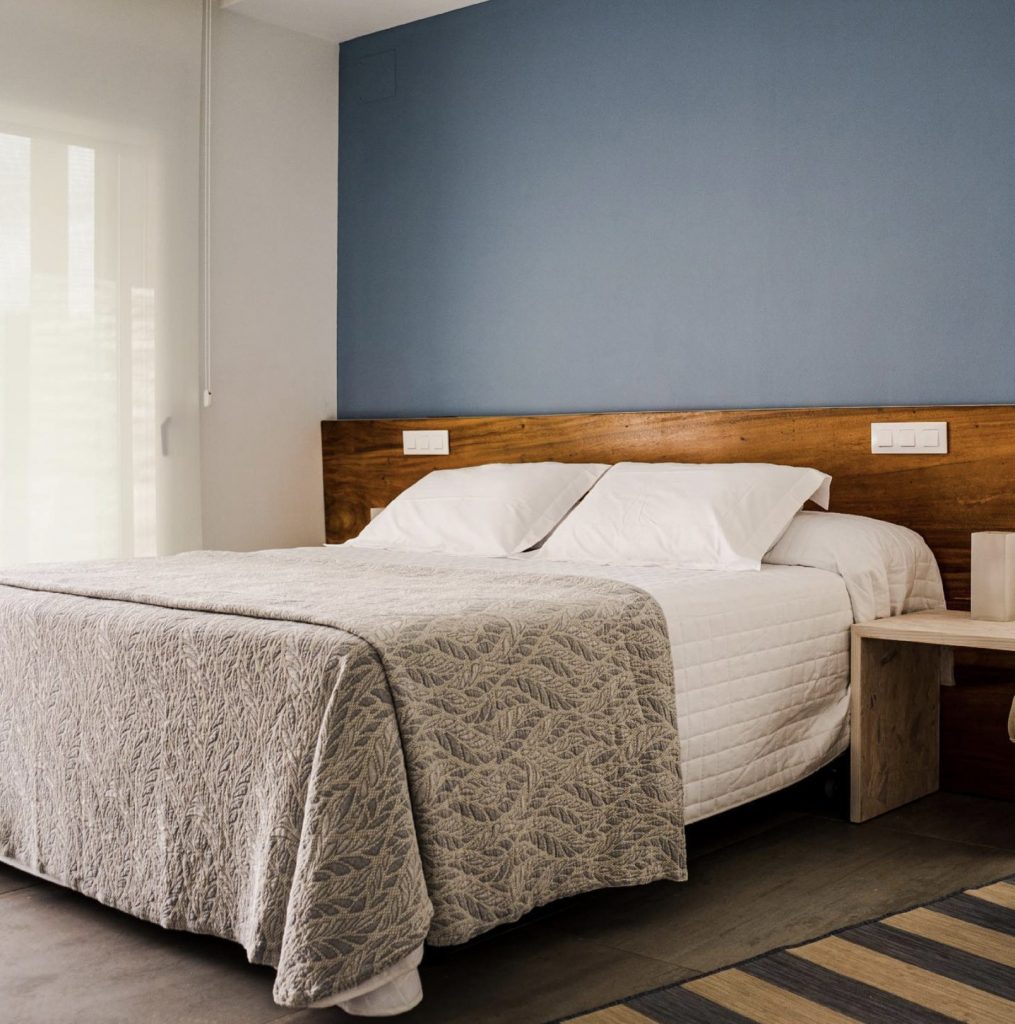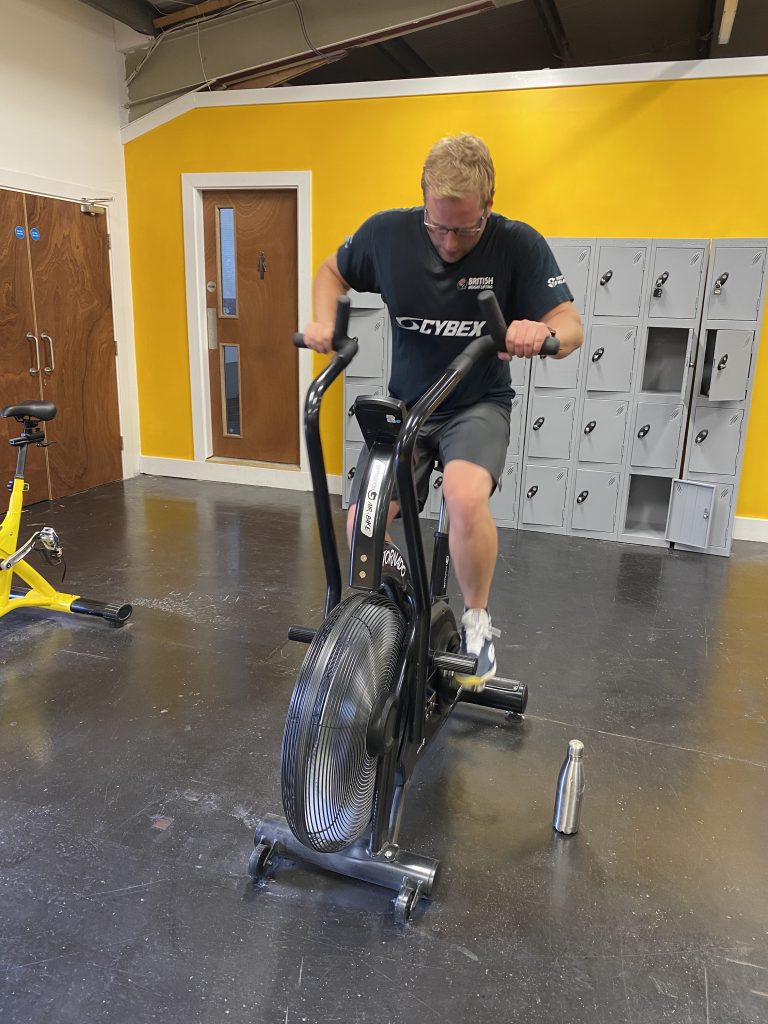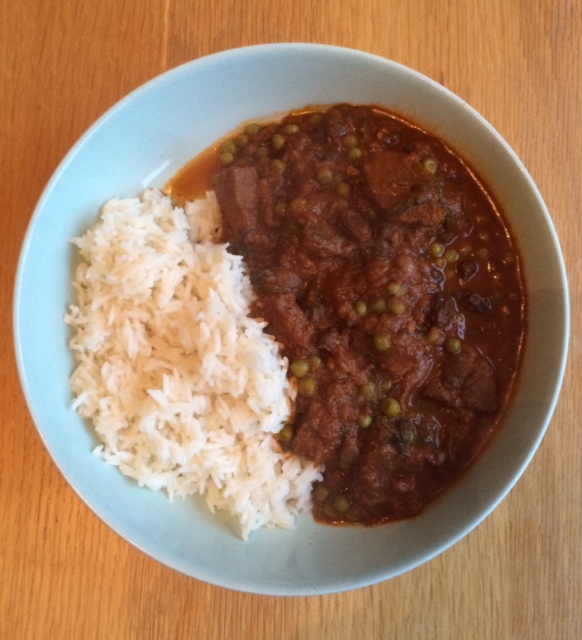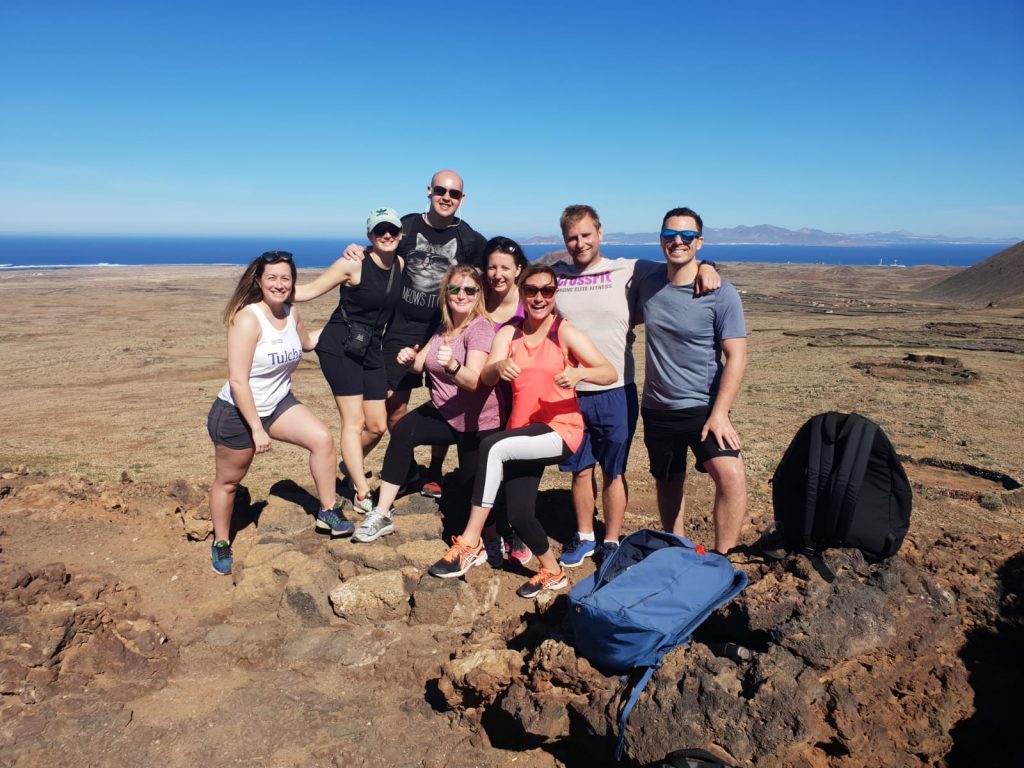Improve Your Energy Levels With 11 Practical, Actionable Tips
I’m going to show you how to improve your energy levels. No pills, no potions, no magic. Just simple and easy to introduce behaviours. They don’t cost anything and anyone can do them.
Trust me, do these and you’ll have more energy.
According to my Polar Flow account (the account that saves my workout data from my heart rate monitor), I worked out 218 times in 2023.
I did that despite my sub-par sleeping habits (more on that in a second), and a very busy life. Admittedly, I have advantages in my favour – I own and work in a gym, and I don’t have a long commute. I’m self employed, so my schedule is (largely) determined by me.
There’s also disadvantages… my working day starts at 5.45 in the morning, and sometimes doesn’t end until 9pm (or later if required). I have two sons with important sporting commitments – one of which sees us arrive home at 9pm 3 nights per week.
They’re long days, and that’s an energy drain.
So in this blog post I’m going to show you how to improve your energy levels with 11 practical, action tips. These are all easy to introduce into your life and schedule. They don’t cost you much (in some cases nothing), and they work.
So why am I sharing this?
Simple. I’m bored of hearing people tell me they’re too tired/low on energy. If it sounds like you, take these energy-boosting tips on board and use them to give your energy levels a shot in the arm…

Before we go any further, I want to put on record I know there are medical conditions that affect energy levels such as chronic fatigue syndrome, anaemia etc. These tips doesn’t count for those guys (although they may help). Go and see a doctor if you’re suffering from those conditions.
In the meantime, if you want to improve your energy levels, read on…
Exercise will improve energy levels
I can hear the groans already.
Of course a personal trainer is going to suggest exercise as an energy-booster.
Honestly, I couldn’t care less about the obvious suggestion. It’s hands down the most powerful quick-fix energy booster there is. Better than caffeine, taurine, or whatever energy drink you want to pour down your gullet.
Movement is the fastest way to wake yourself up physically and mentally. Research shows that there’s a significant range of improvements in brain function after even a single bout of exercise.
A study titled ‘The Effects of Acute Exercise on Mood, Cognition, Neurophysiology, and Neurochemical Pathways: A Review‘ from 2017 reviewed a wide range of studies looking at the impact of exercise on brain function, chemistry, energy levels and general cognition. They concluded…
‘We show that the three most consistent cognitive/behavioural effects of a single bout of exercise in humans are improved executive functions, enhanced mood states, and decreased stress levels.’
What was also interesting from the research was a linear effect between exercise intensity and the subsequent boost. The harder you can work, the greater the benefit from the exercise. A great approach is HIIT, so you can work at a high intensity and be done quickly.
So it’s not just an anecdotal observation, exercise gives you a very real energy and alertness boost.
Quality, type and timing of exercise
Here we go again eh? A personal trainer recommending exercise? Funny that…
Pipe down though, and read on. It’s important.
The research clearly shows that there’s a positive relationship between exercise and sleep quality. There’s a couple of caveats though…
- HIIT seems to be the best type
- You can’t do it close to bed time, because it disturbs your sleep
Regarding HIIT helping sleep…
A 2021 review titled Effects of High-Intensity Interval Training on Sleep: A Systematic Review and Meta-Analysis showed that ‘HIIT may be a promising way to improve overall subjective sleep quality and objective sleep efficiency‘.

In addition to this, a study from Saudi Arabia showed that late night exercise negatively impacted sleep quality. The study titled ‘Effect of Nighttime Exercise on Sleep Quality Among the General Population in Riyadh, Saudi Arabia: A Cross-Sectional Study‘ monitored the sleep of 385 people post exercise.
The conclusion drawn was a simple one…
‘…lengthy, intense evening exercises had a negative effect on sleep. Incorporating regular exercise tailored to individual preferences and encouraging people to widen the time interval between exercise and bedtime could improve sleep quality.‘
Again, exercise is a benefit to sleep, as long as there’s a wide enough time interval between the conclusion of the workout and the sleep.
Sleep improves energy levels
If you want to boost energy levels, you’ll need to make sure you’re well rested. That means plenty of good quality sleep. The emphasis here is on the quality, because you can be tossing and turning in bed for 12 hours, but if the quality is terrible it’s no good.
A good quality 7 hours sleep is better than a poor quality 10+ hours.
So the question is how do you improve your sleep quality?
There’s a few simple approaches to help improve your sleep, and some of them start from the morning. That’s an important detail as well – sleep isn’t something that you prepare for when you walk upstairs to bed. If you want to maximise your energy, you need to think about your sleep pattern as something longer term.
Morning light exposure
As early as you can, expose your eyes to natural light.
That’s not always an easy thing to do (I live in the UK and in the depths of winter, it’s only getting light at around 8.30 in the morning), but when the opportunity arises, take it. This early morning light helps to set your circadian rhythm.
This isn’t woo-woo advice either – it’s evidence based. In a research paper titled ‘Time spent in outdoor light is associated with mood, sleep, and circadian rhythm-related outcomes: A cross-sectional and longitudinal study in over 400,000 UK Biobank participants‘ published in 2021, the researchers noted…
Our findings suggest that low daytime light exposure is an important environmental risk factor for mood, sleep, and circadian-related outcomes.
There’s an easy way to stack these benefits therefore. Get outside for an outdoor workout in the morning if you can. That way you’ll get the early light exposure and the wakefulness benefit of exercise. It doesn’t even have to be intense – I’ve found a morning walk to be just as good.
Regular bed times
Our bodies respond well to routine. This especially true to when it comes to sleeping, and it’s something I experience first hand. Let me explain…
From Tuesday to Friday I’m up at 5.15 in the morning. I don’t get to bed until 11.30 sometimes, so I accrue a sleep debt. On the weekend, I catch up. By Monday morning, I’m well recovered. I’ve also shifted my sleeping patterns by waking up later.
Monday night rolls around and I’m wide awake!
I’ve slept well all weekend and I’m not as tired. I head to bed, knowing I’m not tired enough to sleep. I don’t sleep much, then my alarm goes off at 5.15 Tuesday morning and I’ve not had much sleep. The tiredness starts. I need to take proactive steps to improve energy levels on those days.
I’ve learned to live with this now, but it’s not a strategy I recommend. Stick to a regular bedtime to regulate your sleep pattern.
Eating before bed
Want to ensure you don’t sleep as well? Then eat a large meal before bed time. That’s a surefire way to disturb your sleep and compromise recovery.
A small snack isn’t a problem, – especially if you’re likely to be woken by hunger in the middle of the night. The bigger problem is when you eat a large meal and then try to sleep. The sleep cycles are disturbed and your subsequent sleep quality is poor.
Give yourself at least a couple of hours between your final meal and bedtime.
On the same note, don’t drink too much liquid (of any form) too close to bed. You don’t want to be up in the night going to the toilet if you can help it.

Limiting alcohol consumption improves sleep
Although the common image of drinking is that it helps you fall asleep, the truth is actually completely different. The sleep quality you have following a heavy night is disastrously poor.
In a research paper from 2018 titled ‘Alcohol and the Sleeping Brain‘, researchers studied the impact large amounts of alcohol consumption had on sleep quality (bet that was a fun study to be a part of – getting pissed for science!)
The researchers found…
‘Acute administration of large amounts of alcohol prior to sleep leads to decreased sleep onset latency and changes in sleep architecture early in the night, when blood alcohol levels are high, with subsequent disrupted, poor quality sleep later in the night.‘
In English, this means that if you drink heavily before bed, you fall asleep quicker (pass out) and sleep deeply at first, but the rest of your sleep is poor quality. It’s why we often feel so tired after we’ve had a drink. We’ve had a terrible sleep.
Managing caffeine consumption helps
You can file this under ‘obviously, dickhead’ when it comes to negative impact on sleep.
We all know that caffeine intake can negatively impact sleep. I’m using the word ‘can’ on purpose, because some people are more affected than others. I have friends who could lick a chocolate bar after 9 am and struggle to sleep that night.
On the other hand, I could IV an espresso 5 minutes before bed and still sleep well.
Learn which type you are and act accordingly. If you know that caffeine impacts your sleep, reduce your intake, or at least time it more in tune with your sleep cycles.
If you need an idea of just how large an effect caffeine can have on your sleep, take a look at this research from 2013. It’s titled ‘Caffeine Effects on Sleep Taken 0, 3, or 6 Hours before Going to Bed‘ and the administered dose was 400mg (admittedly, a large amount of caffeine given most energy drinks are around 150-200mg per 500ml.
The conclusions were…
The magnitude of reduction in total sleep time suggests that caffeine taken 6 hours before bedtime has important disruptive effects on sleep and provides empirical support for sleep hygiene recommendations to refrain from substantial caffeine use for a minimum of 6 hours prior to bedtime.
Basically, if you’re sensitive to caffeine, avoid it for 6 hours before bed time.
Daily routines will impact your energy levels
To improve your energy levels you have to start early. You have to think of the day as a whole – activity isn’t in windows.
Start your day early. Getting up early isn’t always fun (trust me, I do it most days), but you’ll be thankful for it later in the day. You’ll feel tired earlier, and you’ll sleep earlier.
A morning walk outside is a big help. You’ll set the circadian rhythm in place. Even if you can’t walk outside, maybe do 50 air squats and 50 push ups in front of your window, so you’re looking at the sunlight/natural light. It’s not your main workout for the day, but it’s enough movement to get you awake.
It’s a double win – you’re getting in some movement and light exposure.
Have an early shower. That forces movement too. You’re washing, but then you’re also getting dry and dressed. It’s a metaphorical uniform change, taking you from ‘sleeping’ clothes to ‘I’m getting shit done’ clothes.
Throughout the day, move. Take little breaks, walk around. If you can, get a workout in during the day (or as soon as you can after work).
East well. If you feed yourself a diet of processed shit, you’ll look and feel shit. Energy will be through the floor. Earn your carbs – prioritise protein and fibre, fill in the gaps with unrefined carbs (potatoes, rice and fruit are my go-to).
If you’re caffeine sensitive, don’t pour a gallon of the stuff down your throat in the evening,. Act like an adult. Same with food and booze. We know it affects sleep, so keep a lid on it.
I’ve got no problem with a big night every now and then, but you can’t drink a load of booze on a school night and wonder why you sleep badly and are knackered all the time. Start holding yourself accountable if you want to improve your energy levels.

Psychology – own your habits and routines
I’ve given you a whole bunch of tips to improve your energy levels, but the one that underpins them all is your psychological approach to these things. A lot of tiredness is psychosomatic. If you think you’re tired and you need a rest, you will feel tired and want to rest.
A controversial opinion I have is that most people who claim to have low energy are fundamentally, lazy.
Think of energy levels as a car battery. It’s charged by movement. When you get up, you move, you exercise, you work, you perform tasks around the house etc, you don’t feel tired in the moment. You accumulate tiredness, which helps you to sleep later on.
Better sleep = better recovery = more energy.
We’re a society obsessed with ‘chilling out’, yet we work by sitting on our arses all day. Surely we should look at the antidote to this, rather than more sitting on our arses? If you work at a desk, you’ll do your energy levels far more good by getting up and moving after work, rather than lying down on the sofa.
There’s a chicken and egg at play…
You think you’re too tired to move, but movement is what wakes you up.
Get moving, and you’ll have more energy. It really is that simple.
Want to improve your energy levels? Do these…
- Wake up earlier (lie-ins will ruin your sleep cycles).
- Get some natural light exposure early. Make it one of the first things you do. As little as 2-10 minutes is fine.
- Shower early, change your ‘state’.
- Move your body. A morning walk/outdoor workout is ideal. Failing that move your body by an outdoor window.
- Eat well. Keep processed foods low. Eat plenty of protein. Keep your carbs natural.
- Get a workout in during the day – ideally high intensity, and keep it as far away from bed time as possible.
- Don’t eat a large meal just before bed time.
- Don’t drink caffeine too close to bed time (ideally at least 3 hours before bed).
- Don’t drink more than 2 alcoholic drinks before bed time.
- MOVE YOUR BODY! Energy is a state of mind as much as a state of being.
- Take accountability.
It’s not always easy changing your wake time. Get out of bed early and you’ll be better off for it. Expose your eyes to natural light. Exercise when you’re tired. Eat better. Booze less. The obvious stuff… it helps.
Follow these 11 tips and you’ll improve your energy levels no end.